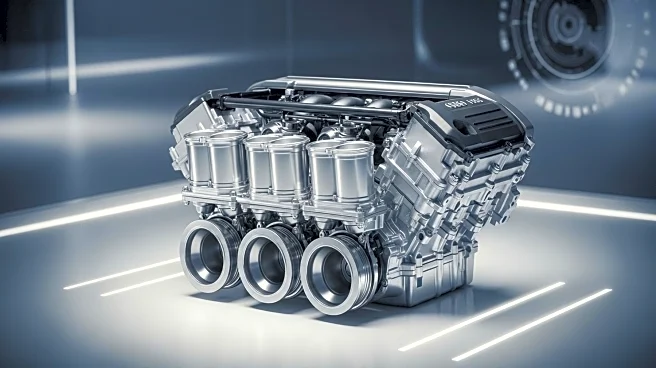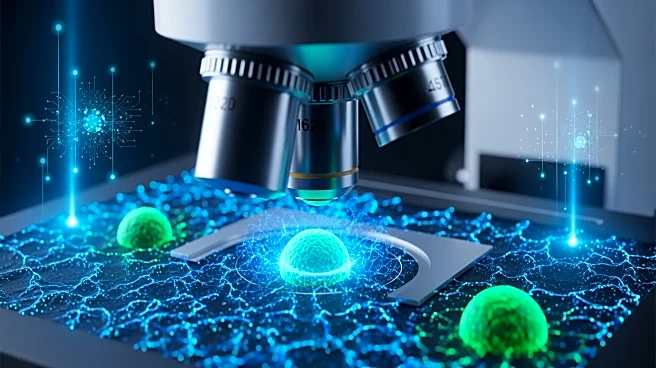What's Happening?
Audi has announced the discontinuation of its iconic five-cylinder engine, which will cease production in the RS3 model by 2027. The decision is driven by tightening emissions regulations, specifically the upcoming Euro 7 standards. Audi CEO Gernot Döllner stated that while the engine could technically be adapted to meet these standards, the investment required is not justified by market demand. The RS3 is currently the only model featuring the turbocharged 2.5-liter engine, and its production will end in about two years. Audi's focus is shifting towards electric vehicles, as evidenced by the unveiling of the Concept C at the IAA Mobility Show in Munich, which will be strictly electric.
Why It's Important?
The discontinuation of Audi's five-cylinder engine marks a significant shift in the automotive industry towards more sustainable practices. As emissions regulations become stricter, manufacturers are increasingly moving away from traditional combustion engines. This transition impacts not only Audi but also the broader market, as other companies may follow suit. The move towards electric vehicles aligns with global efforts to reduce carbon emissions and combat climate change. Audi's decision reflects the industry's adaptation to regulatory pressures and changing consumer preferences, potentially influencing future vehicle designs and technologies.
What's Next?
Audi plans to send off the RS3 with a more powerful version before the engine's discontinuation. The company is also exploring the possibility of using the inline-five engine in other models within the Volkswagen Group, such as the ultimate Golf. However, the future of the RS3 remains uncertain, as Audi has previously stated it would not produce a four-cylinder RS model. The ninth-generation Golf is expected to be purely electric, indicating a broader shift towards electrification within the group. Audi's strategic focus on electric vehicles suggests continued innovation in this area.
Beyond the Headlines
The end of Audi's five-cylinder engine highlights the broader ethical and environmental considerations in the automotive industry. As companies face increasing pressure to reduce emissions, the shift towards electric vehicles raises questions about the sustainability of battery production and disposal. Additionally, the transition may impact employment within traditional engine manufacturing sectors. Audi's decision reflects a balance between regulatory compliance and market demand, underscoring the complex dynamics of modern automotive production.










